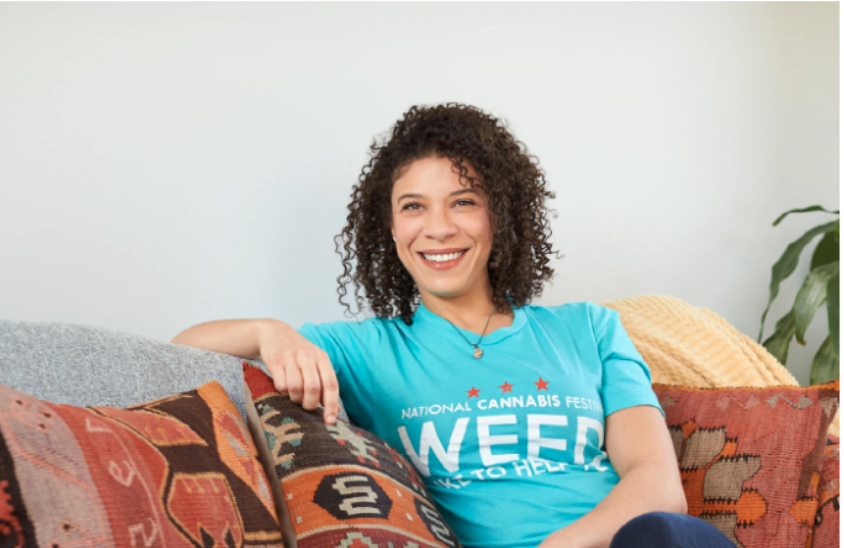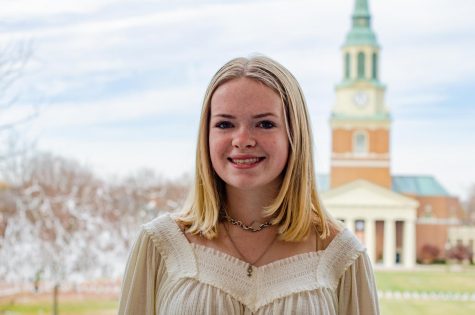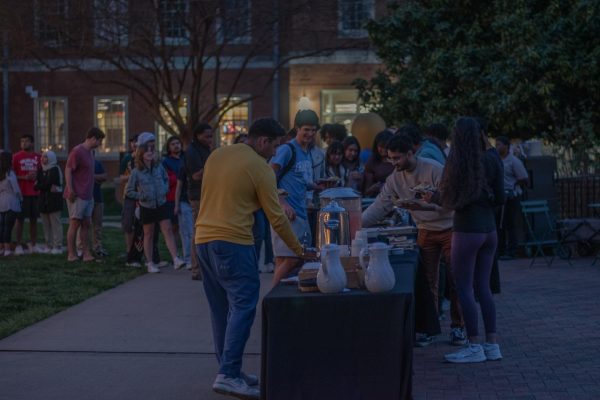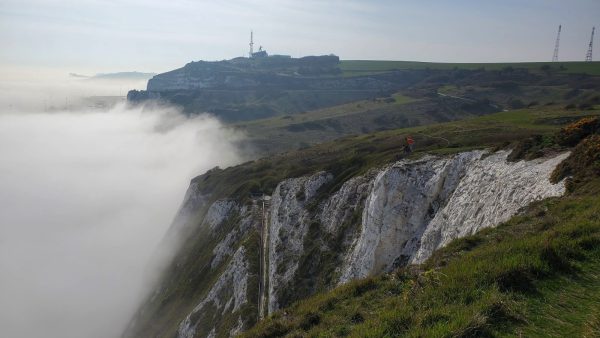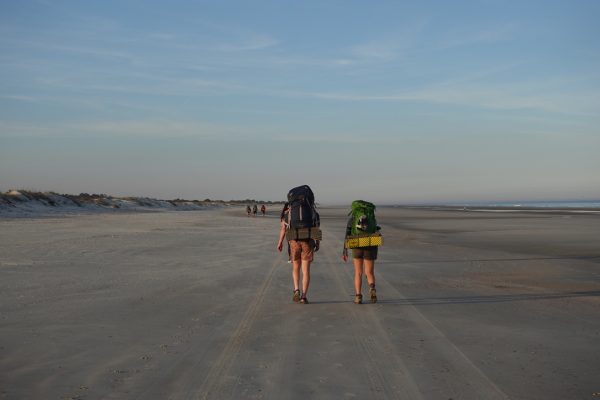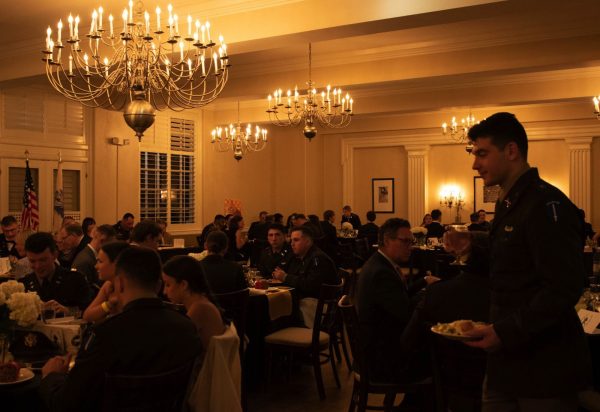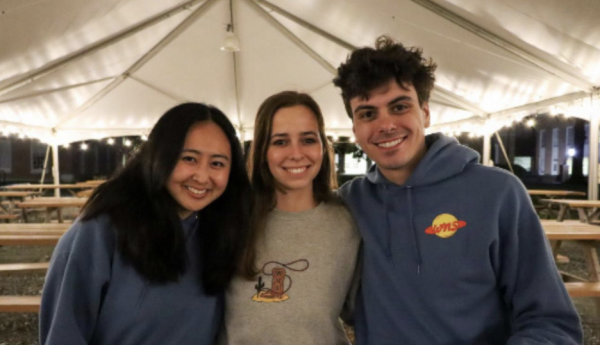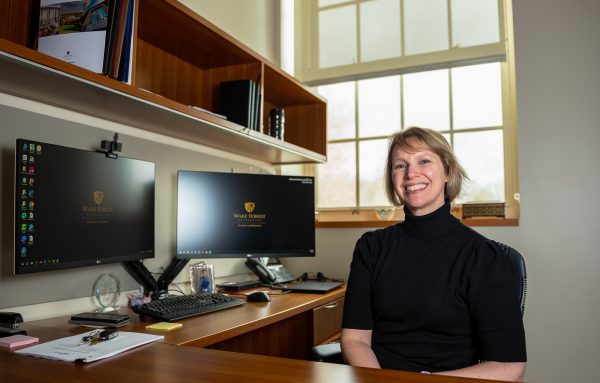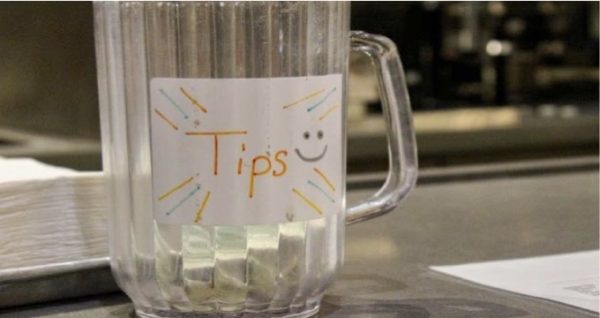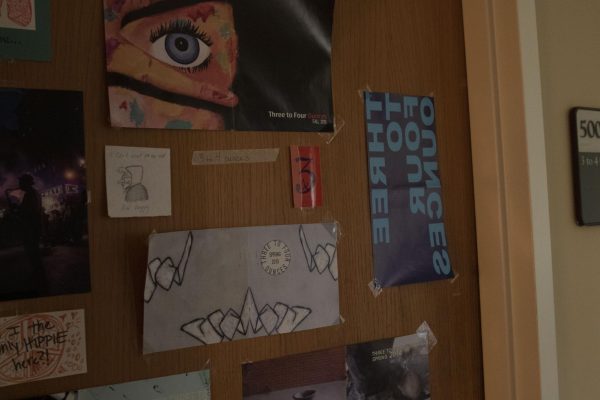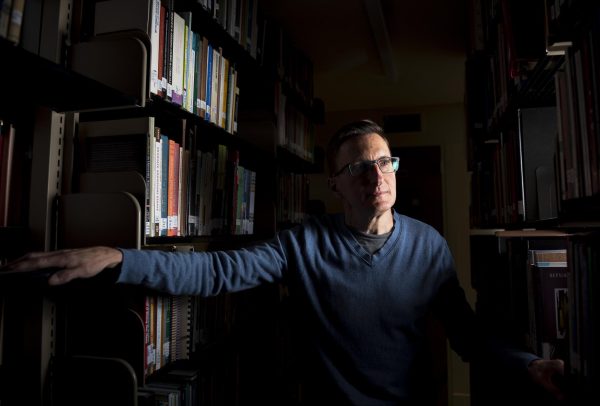Deacon Profile: Caroline Phillips
A 2003 alumna, Caroline Phillips is a pioneer in the cannabis industry.
Caroline Phillips is a Washington D.C.-based entrepreneur and social justice advocate who is a rising star in the cannabis industry.
March 3, 2022
Caroline Phillips, Wake Forest’ 03, is a Washington D.C.-based entrepreneur and social justice advocate who is a rising star in the cannabis industry. In 2016, Phillips founded the National Cannabis Festival, now the largest ticketed cannabis event in the nation. Two years later, she launched the National Cannabis Policy Summit, an agenda-setting, nationally-televised gathering of lawmakers, industry heavyweights and policy experts. As a board member of Supernova Women, she has helped to bring issues of equity and representation of Black and brown people in the cannabis industry into the national conversation.
How did you first get involved in the cannabis industry?
After leaving Wake Forest, I worked for a lot of different nonprofits in the D.C. area and found my way into human rights. When cannabis was first legalized in D.C., I noticed that while there were a lot of people coming to the city for really expensive conferences and bidding millions of dollars on cannabis businesses, there were also still a lot of people in our city who were incarcerated for cannabis offenses. So I wanted to make sure that there was an event that talks about all of the progress on drug policy and cannabis legalization, but also points out all of the challenges that still remain.
How did your time at Wake Forest (if at all) prepare you for your work and entrepreneurship?
I think that my time at Wake Forest really helped highlight some of the disparities and gaps that we see in society today, from racial justice and social justice issues, even as far as how students experienced cannabis on campus.
There were certain bodies of students that were able to experience cannabis with relative ease, while perhaps Black and brown students had greater repercussions. I think that’s something that I learned firsthand while I was on campus that I then saw more and more of out in the real world. Wake Forest gave me the toolkit that I needed to be able to go out into the world and articulate some of these things that I’ve noticed, and then take those things and use them to fuel the work that I do now.
What issues of equity and representation of Black and brown people in the cannabis space do you fight to raise awareness for?
In addition to my work on the National Cannabis Festival, I’m also the deputy director of Supernova Women. We’re an organization that is run entirely by Black and brown women. We work to ensure that Black and brown people are stakeholders in the cannabis economy. Right now, less than 3% of business owners in the cannabis industry are Black and brown-owned.
On the other hand, if you look at the percentage of people incarcerated for crimes related to cannabis, the numbers on that are vastly different. Black people are four times more likely to be arrested for cannabis use or possession than white people. I think that those are issues that everybody should be looking at as we start to consider a legalized and regulated cannabis industry. It’s not just about recreation, it’s also about medicine and criminal justice reform.
Can you tell me about the National Cannabis Festival and what went into creating/executing the event?
I started the festival back in 2015 when I noticed that there were a lot of folks interested in finding ways into the cannabis industry or learning about cannabis as medicine. There weren’t a lot of affordable or accessible outlets for doing that, so I wanted to create a space that felt safe and accessible, specifically to Black and brown people. I also wanted to create an event that talked about the challenges that still remained in the industry. The festival takes place at RFK Stadium in Washington D.C. Less than a mile away is the D.C. jail, in which the vast majority of folks incarcerated for cannabis offenses are young Black men — that’s something that we cannot ignore today.
The National Cannabis Festival is set for April in D.C. with headliner Wiz Khalifa. What do you hope people will get out of this event, and how do you get people involved?
I think folks are attracted to the festival because they’re curious about cannabis. They’re not used to seeing it in the mainstream. We use artists like Wiz Khalifa, Lettuce and Ghostface Killah to bring in folks who are interested in entertainment. We hope that by drawing them in with the artists, they end up running into one of the 30 nonprofit advocacy groups exhibiting on-site.
We also have tons of exhibitors at the festival who promote cannabis culture, accessories, products and lifestyle — and people can shop there. We have five education pavilions where you can learn about cannabis policy, homegrown techniques and how cannabis can be part of your everyday wellness routine. We also have a “Munchies Zone” that rivals any food festival that you’ve ever been to in the United States.
I think that we have all of the fun components to the festival, all of the music that you would find at a music festival, plus a pretty heavy serving of social justice and cannabis education. It’s a really fun day for people to come out. And I think everybody leaves now a little something more than they came in with.
Can you speak to the challenges of accessibility and equity in the field of live events?
I do not know many of any other women that own music festivals, let alone cannabis events. I can say the same thing for Black and brown people in this space. We are grossly underrepresented in executive and leadership positions in live music and live events. So, I set out and I started my own festival and my own production company.
I’m really proud to say that our entire company is fueled by Black and brown people and that we are led by women of color. I think that is something very important because we all know how much representation matters. I really hope that anybody working in live events today can take that extra step to seek out young Black and brown people who are up and coming and who are looking for opportunities in this space.
Why are you so passionate about Cannabis legalization, and why should others care too?
I think cannabis has been part of my life in one way or another since I was at Wake Forest. I’ve seen it impact people’s lives in such a positive way as far as being a medicine they’ve turned to or something they’ve turned to in times of stress. I know that we have a safer society when we have regulations around things like alcohol, and I know the same thing goes for cannabis.
I’m passionate about this because I think we’ve all had friends who have stories of people they know who are treated badly. It’s tough to see, suddenly, folks in boardrooms making millions of dollars in the cannabis industry while other people are still suffering so much.
It’s not just about the people who are locked up. It’s about the generational trauma. It’s about the children who grew up without parents. It’s about the kids who got kicked out of universities and were told they were bad people and had their lives thrown off track. It’s a pretty complex topic, but I think that with a compassionate and engaged society, which I think we’re hopefully growing towards, we have a chance to take new industries like the cannabis industry and not just make them another industry, but make them a better industry.


